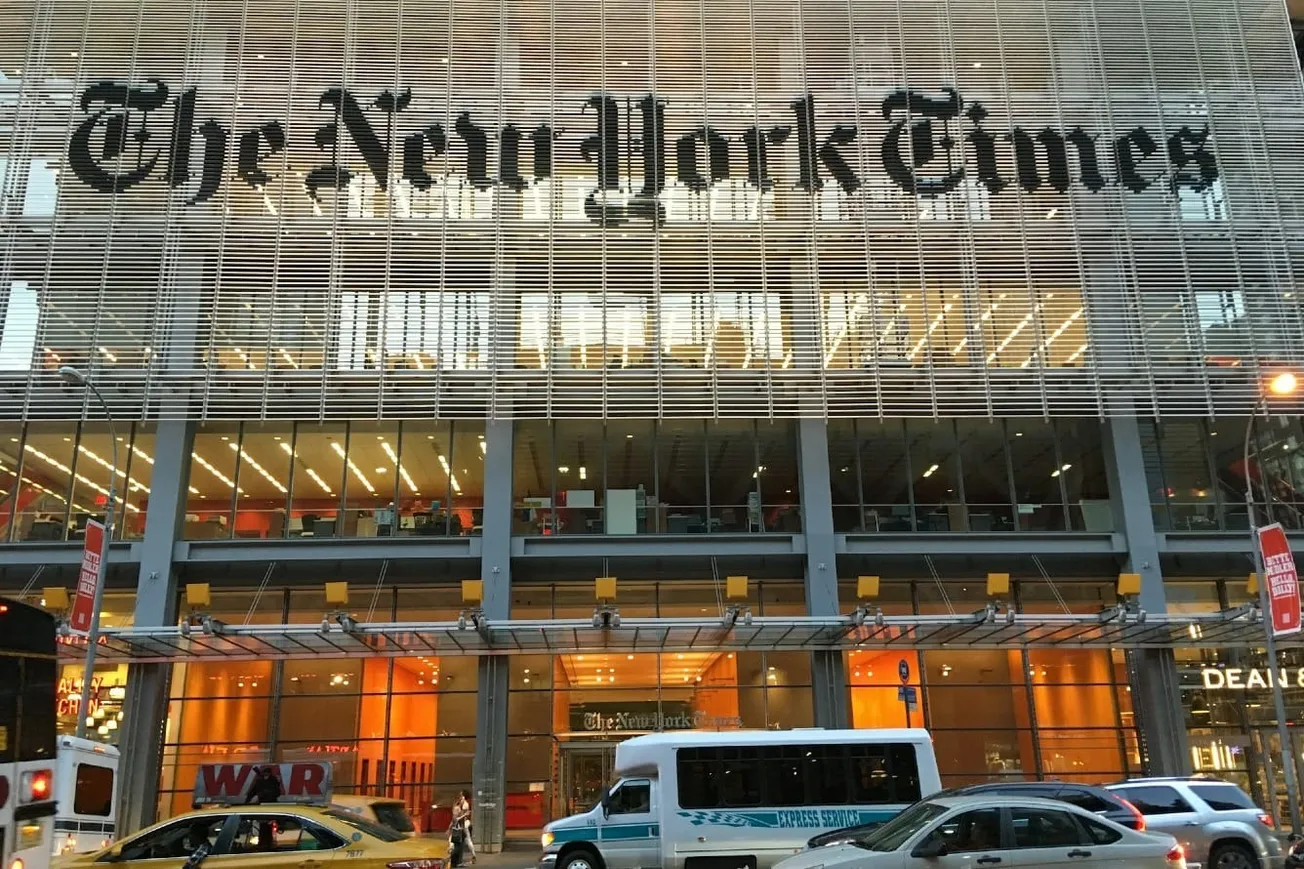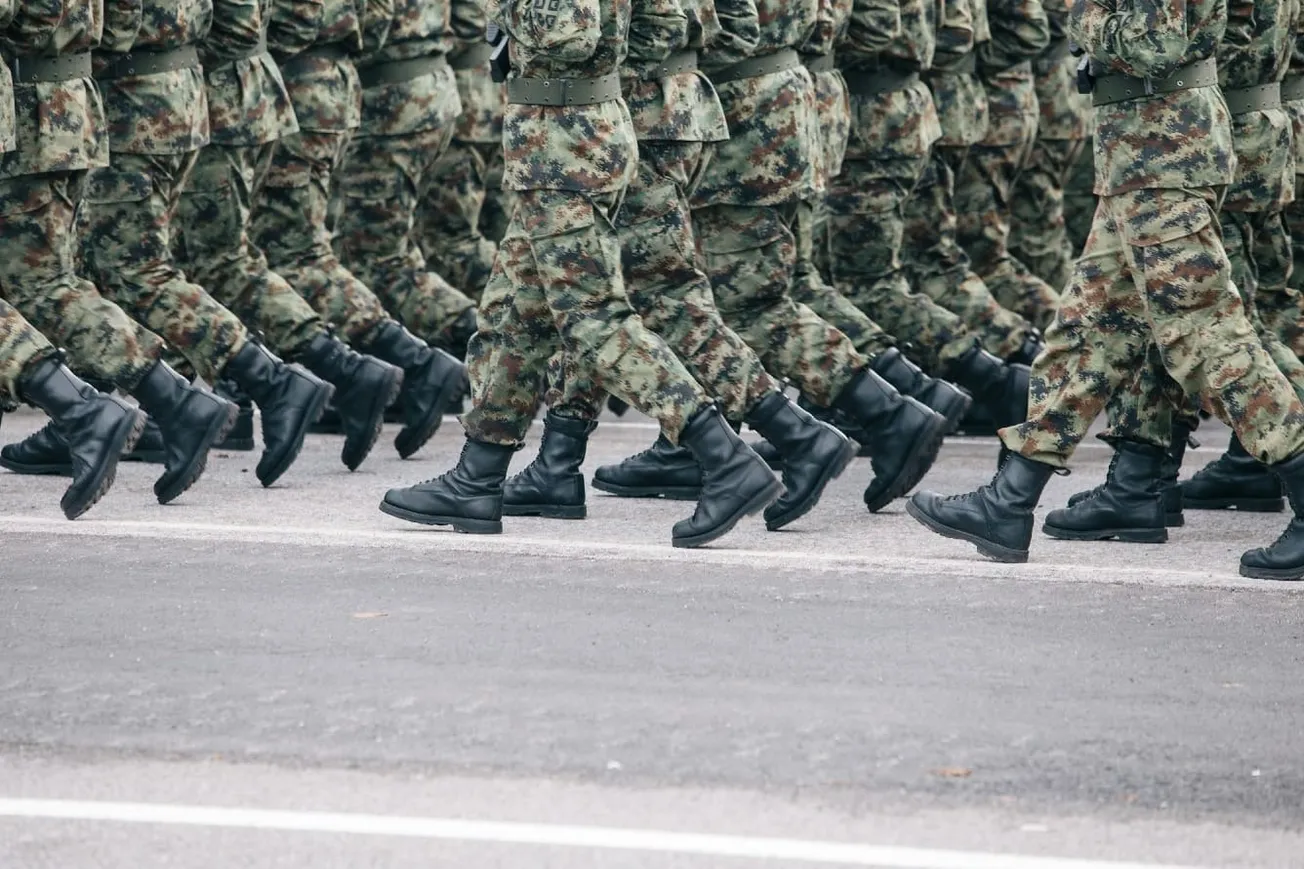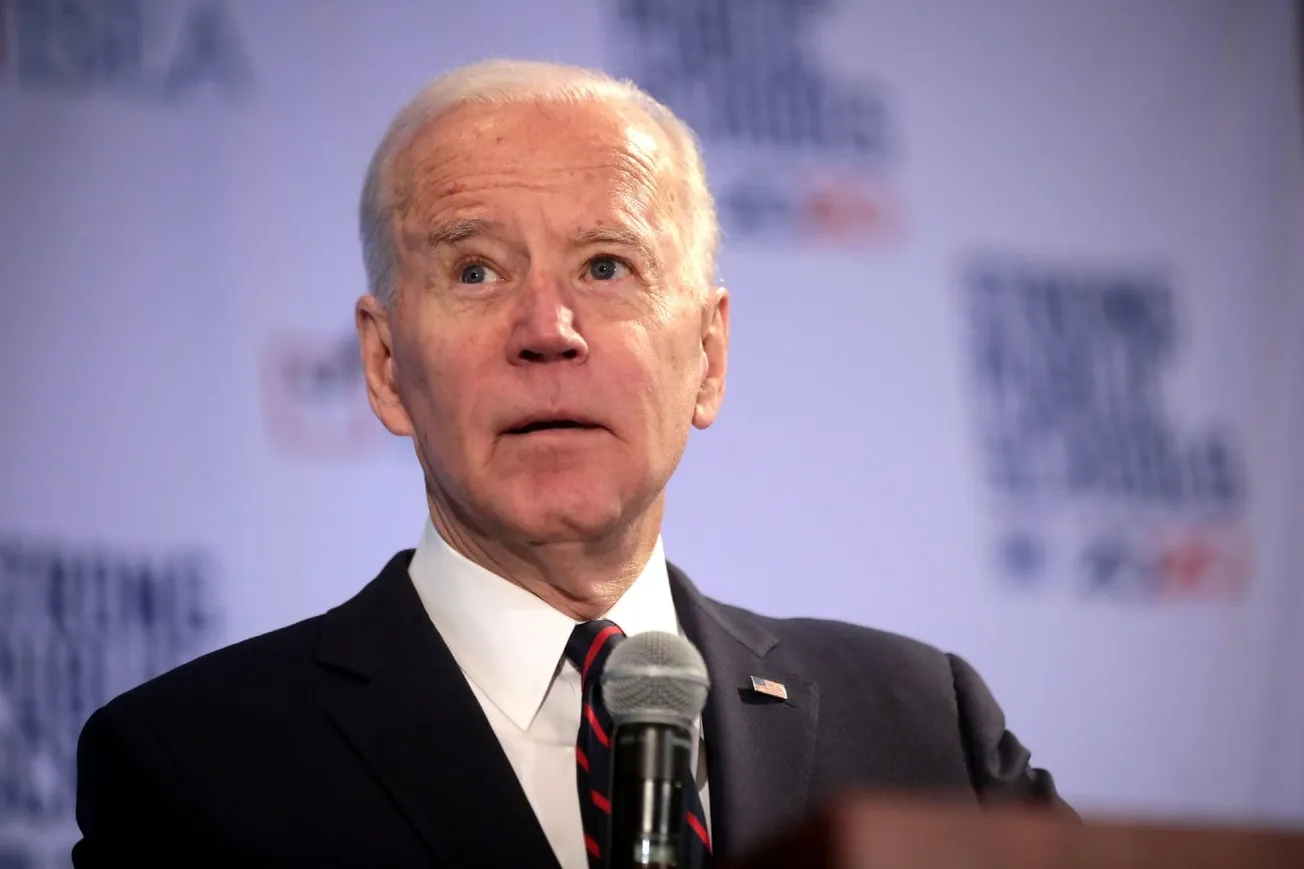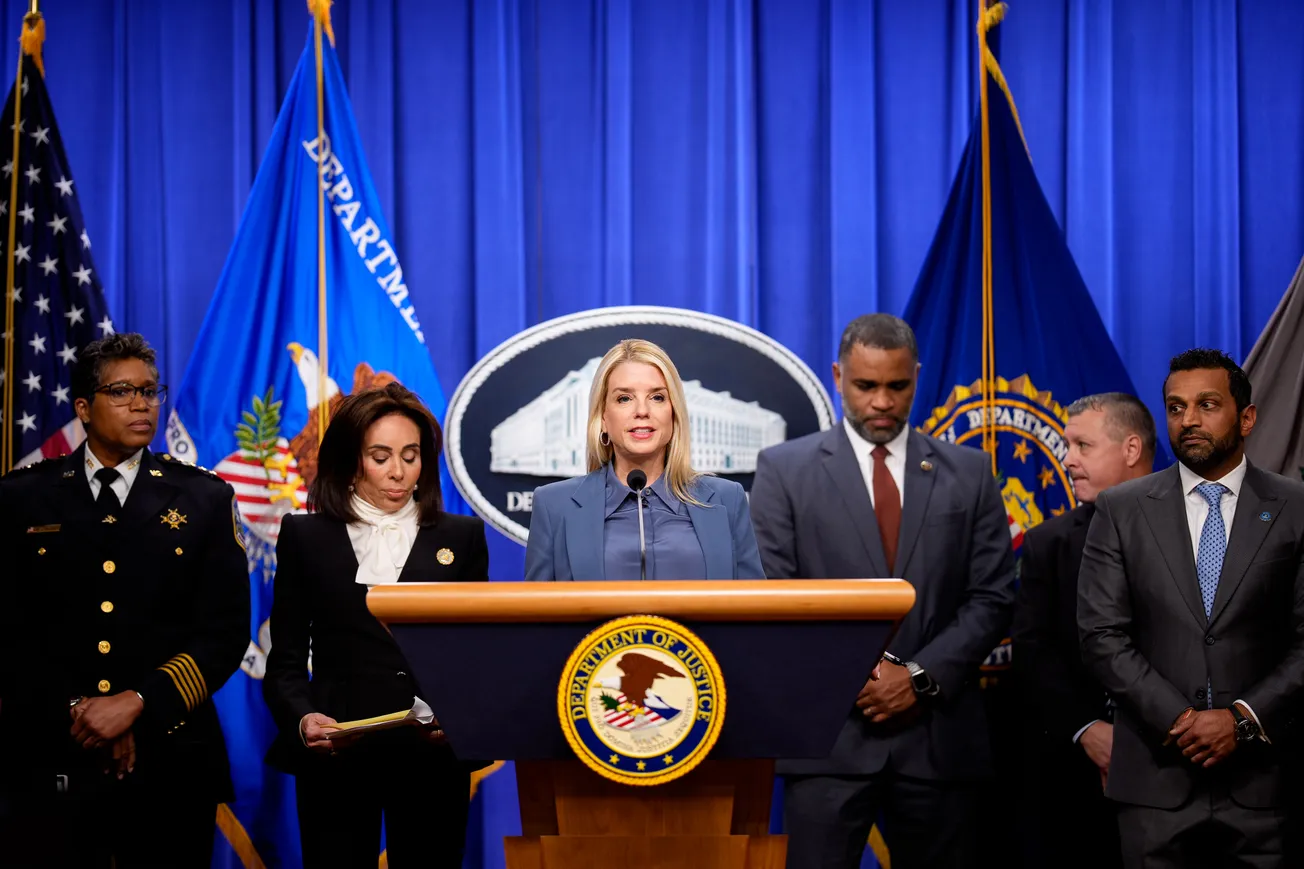No matter which major party's candidate wins this election, there's one sure loser: The media. By nearly two-to-one, voters say they have little or no trust in either the mainstream big media or the alternative media. Can a country survive when two-thirds of its people distrust the reporting of its main news outlets?
In the September I&I/TIPP Poll of 1,582 adults, taken from Aug. 28-Aug. 30 with a margin of error of +/-2.6 percentage points, there was more glum news for the nation's major news outlets. Americans profoundly distrust the stories they tell and how they tell them.
That's not an exaggeration. As it does each month, I&I/TIPP asked Americans for this month's poll:
"Generally speaking, how much trust do you have in the traditional or established news media (Example: Washington Post, New York Times, NPR, CBS News, etc.) to report the news accurately and fairly?"
The answer: Just 35% said they either trusted the mainstream "traditional" media "a lot" (13%) or "quite a bit" (22%). On the flip side, 60% said they had either "little trust" (32%) or "no trust at all" (28%).
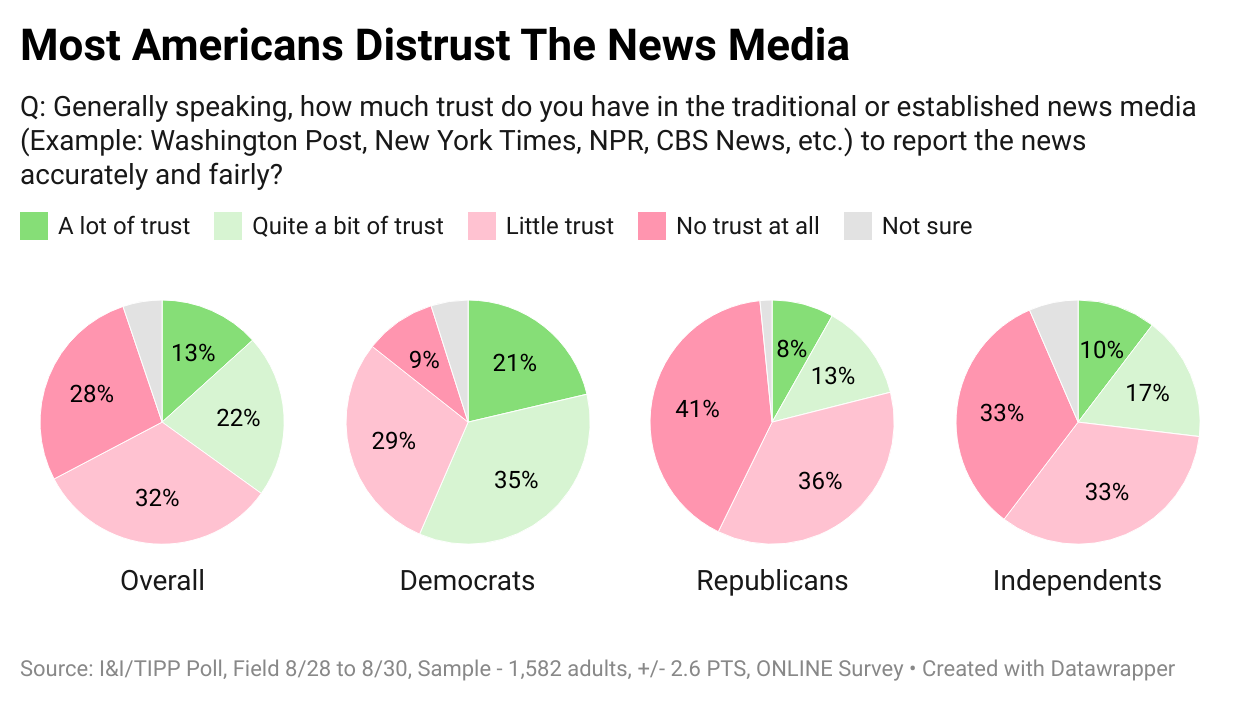
A second question asks much the same thing for so-called "alternative" media, mainly those without the national clout and dominating airwave presence of the establishment media.
"Generally speaking, how much trust do you have in the alternative news media (Example: New York Post, Washington Times, NewsMax, The Daily Caller, etc.) to report the news accurately and fairly?"
Once again, this feisty, center-right group of media find themselves on the short end of the trust stick. Overall, 63% of respondents to the I&I/TIPP Poll said they had either "no trust at all" (25%) or "very little trust" (38%) in their reporting.
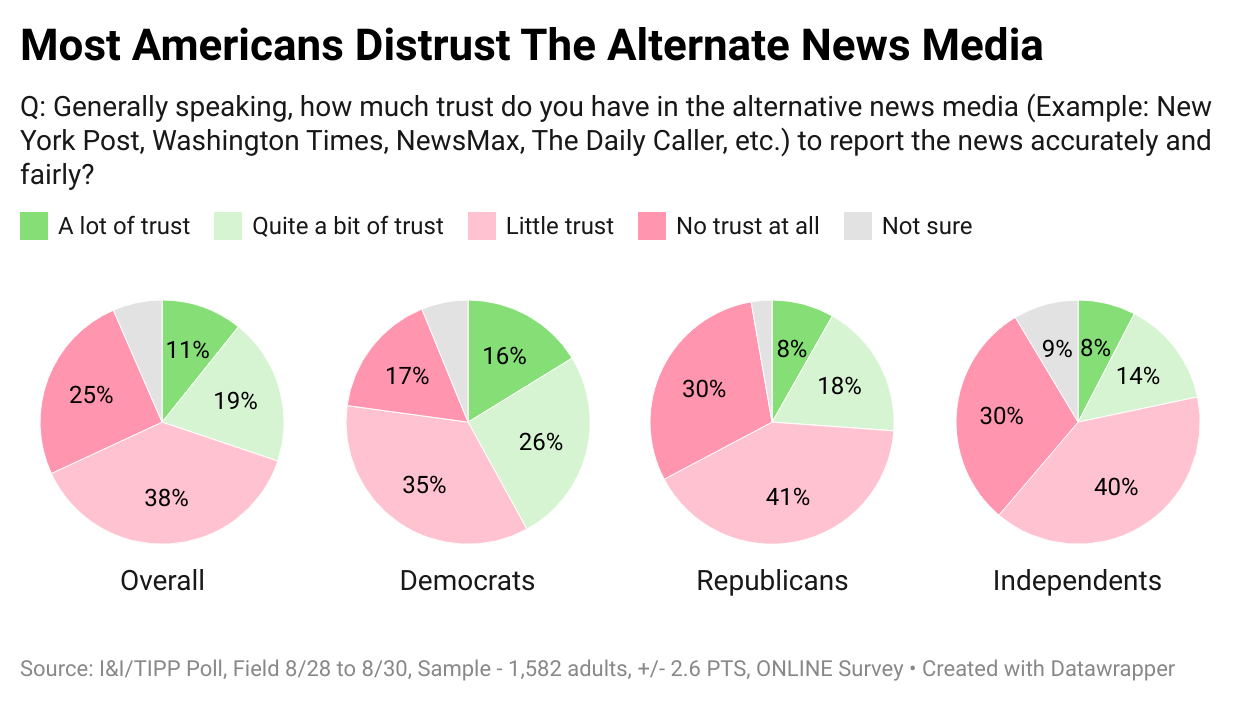
What jumps out from these two questions is just how much more trusting Democrats are in the media than Republicans or independents.
In the case of the first question regarding the establishment media, Democrats gave the highly visible news outlets 56% in overall trust of the establishment media, more than twice the level of trust expressed by either the Republicans (21%) or the independents (27%).
Democrats in general were less hard on the media when it came to "no trust at all," the harshest possible answer. Only 17% of Dems gave the big media that lowest grade, compared to 30% of Republicans and 30% of independents.
Nor is this a recent development. As the TIPP Traditional Media Trust Index directly below shows, trust in the big news gathering organizations overall has been on a decline since March of 2021, when the index was first launched.
But note: Only Democrats have expressed a trust index number (57.8) higher than 50, the make or break point for "trust" vs. "lack of trust." Republicans (27.3) and independents (33.3) are far, far lower, deep in the "lack of trust" zone, and have been for all 39 months of the index's existence.
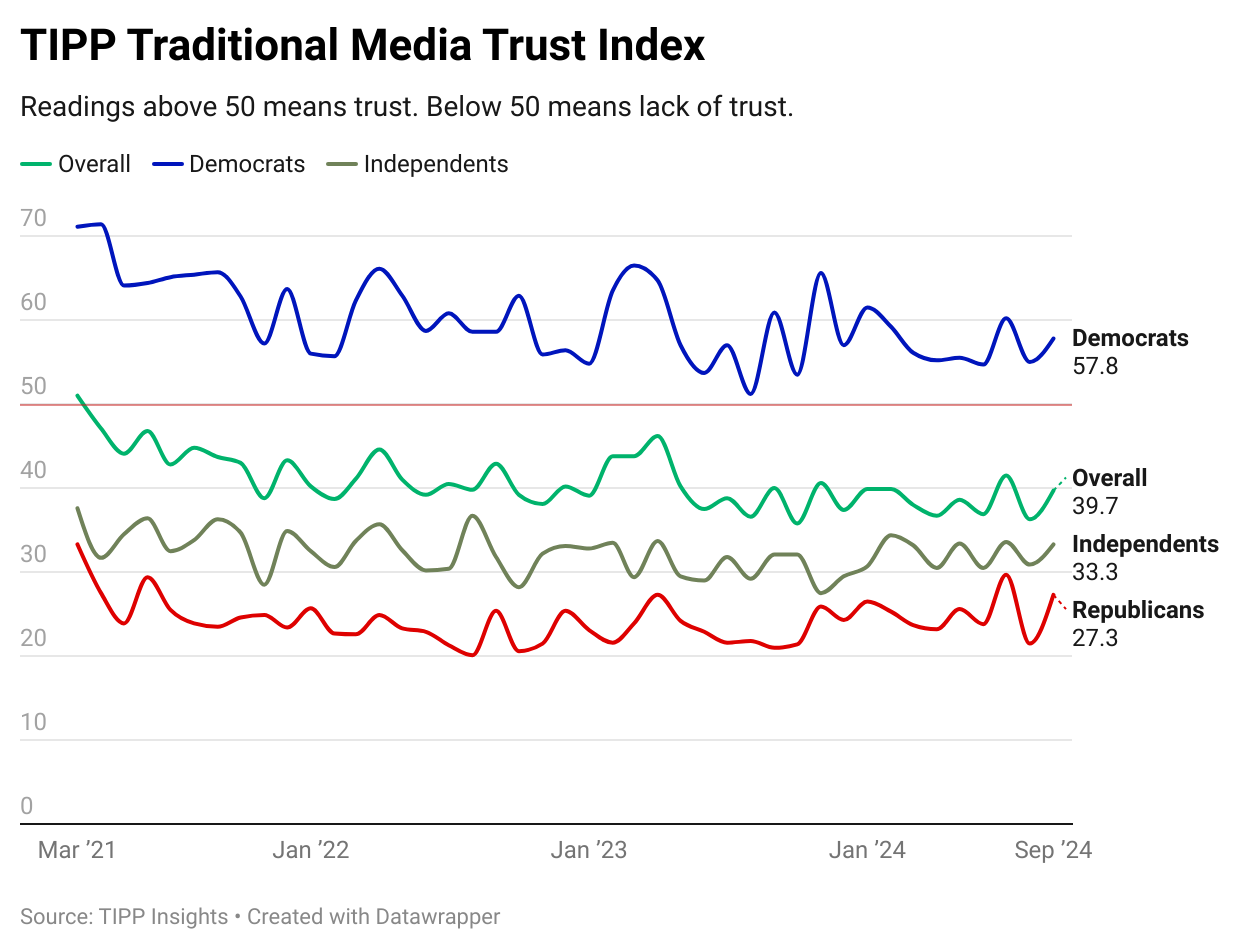
Perhaps surprisingly, Democrats (42%) were also more likely than either Republicans (26%) or independents (22%) to express either "a lot" or "quite a bit" of trust in the mostly center-right reporting of the alternate media.
Even so, as the Alternate Media Trust Index below clearly shows, Democrats are below the make-or-break level, with both the Republicans and independents trailing well behind.
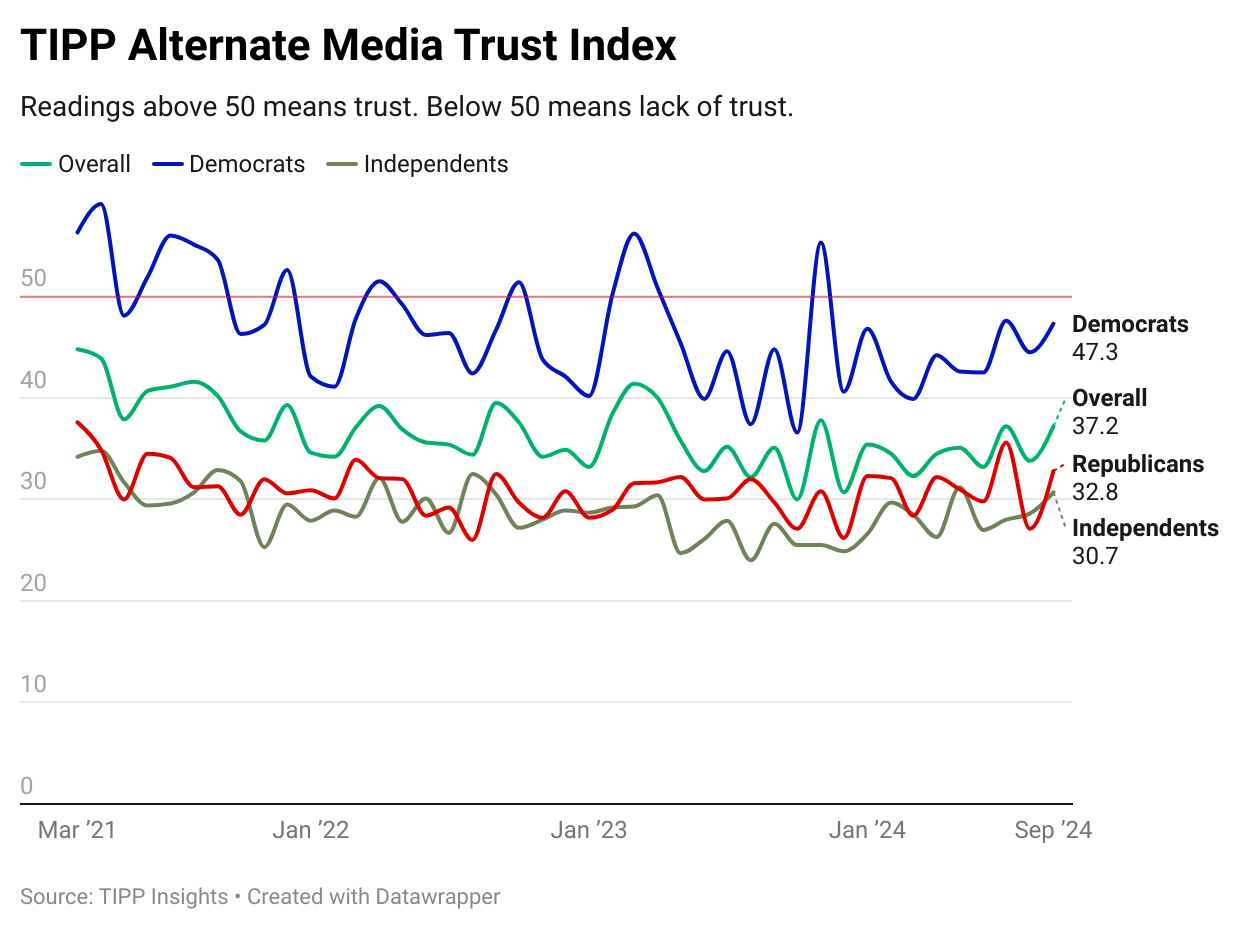
What's behind the startling continued lack of trust in the media among nearly two-thirds of our voting population?
For many, there's a concern with what some have termed "creeping totalitarianism," such as FBI agents knocking on doors to ask people about online posts they made, and a growing movement among major "democratic" governments, including the U.K., the EU, and Brazil, to censor speech they don't like.
That's clear from recent efforts to censor billionaire entrepreneur and inventor Elon Musk, who has alarmed western governments by publicly straying from the "progressive" plantation in both his personal posts and the policies of X, the former Twitter, which Musk bought in 2022.
To the extent that Americans see the media either not covering or downplaying such concerns about growing efforts to curb traditional rights and liberties while imposing wildly unpopular policies on a cowed populace — such as unbridled illegal immigration — might be a major cause of this lack of trust in the media.
Indeed, Americans seem increasingly fearful of expressing their true beliefs. Instead, they pay lip service to their own group's shibboleths and beliefs, but privately hold quite different ideas.
A recent study, reported by Axios, found "stark gaps between what Americans say they think and what they really think about hot-button political issues."
The study, conducted by a think tank called Populace and the online polling group YouGov, came to a startling conclusion:
The belief that there is social pressure to have the “right” opinion is pervasive in America today. In fact, a majority of Americans (58%) think that most people cannot share their honest opinions about sensitive topics.
They are not wrong: In the last year alone, 61% of Americans reported that they have avoided saying things that they believe because others might find them offensive. This includes a majority of all demographic groups — regardless of race, gender, age, income, or political affiliation — with Gen Z having the highest rate of self-silencing of any group (72%).
With the presidential election just a little over a month away, the question arises: Will this cynicism hurt former President Donald Trump in his bid for the White House? Or will it hinder current Vice President and candidate Kamala Harris?
And can the media overcome the suspicions of many American voters that major news outlets support growing government efforts to stifle what the left calls "misinformation" and "hate speech"?
It may be that after four years of creeping censorship and post-pandemic public silencing, a large share of Americans no longer trust anyone to protect their rights, even those media outlets that seem to agree with them. If so, media of all stripes might be in bigger trouble with the public than they realize.
I&I/TIPP publishes timely, unique, and informative data each month on topics of public interest. TIPP’s reputation for polling excellence comes from being the most accurate pollster for the past five presidential elections.
Terry Jones is an editor of Issues & Insights. His four decades of journalism experience include serving as national issues editor, economics editor, and editorial page editor for Investor’s Business Daily.



